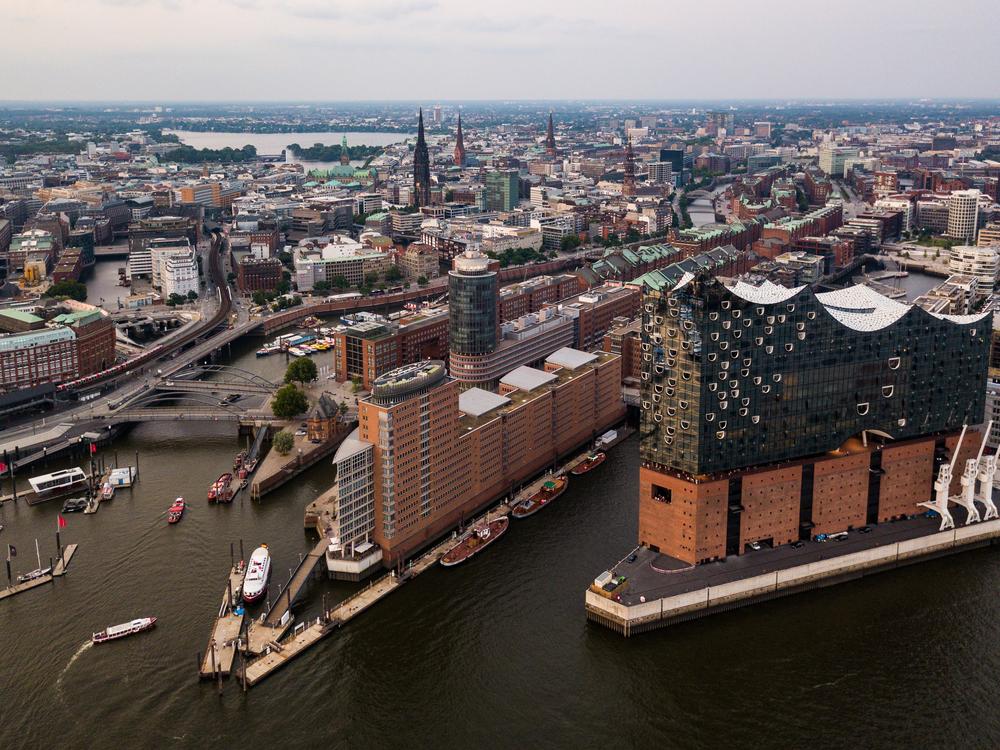The rapid demographic transformation taking place in Germany is perhaps best exemplified by Hamburg, both due to the city’s size and the radical pace of mass immigration there. Now, the Alternative for Germany (AfD) group leader in the Hamburg Parliament, Dirk Nockemann, warns that the city shows Germans are becoming a minority in the nation.
“The numbers don’t lie: Germans are becoming a minority in their own country, and in some parts the Germans are the new minority. This is not a wild conspiracy theory, but pure statistics,” said Nockemann.
The AfD politician made the statements following a report published on Tuesday by the State Statistical Office. The data shows that 40.4 percent (790,000 people) in Hamburg have a migration background. Within this figure, 20.7 percent are foreigners without German citizenship. The district of Billbrook has the highest percentage of foreigners at 80.5 percent, while 88.1 percent of the population there have a migration background. In other words, in that district, there are almost no ethnic Germans.
Nockemann stated that due to the massive inflows of immigrants into Hamburg, the consequences are “unmistakable: exploding social spending and increasing violent crime.”
When the data concerning young people is analyzed, the trends are even more dramatic. In Billbrook, 98.2 percent of those under 18 have a migrant background, while in Hamburg as a whole, this is at 57 percent. Notably, in the schools, over half of the student population is now made up of foreigners Language barriers and cultural differences have caused a real shock in German classrooms across the country, sometimes resulting in violence and dangerous environments, but more often than not, simply poor academic outcomes.
Nockemann quoted former German Chancellor Helmut Kohl, saying: “Kohl already knew: ‘The multicultural society is an illusion of intellectuals.'” He said that a strong welfare state, as seen in Germany, does not work with open borders.
“We finally need a deportation offensive and secure borders,” he said.
Although not as dramatic as Hamburg, massive demographic change has come to wider Germany. Currently, 26 percent of citizens have a migration background in 2023, while 15.2 percent are non-German foreigners.
Known as the Great Replacement, it describes the replacement of European peoples in their homeland by non-European foreigners. Within the French political sphere, the term is mainstream and used by intellectuals, academics, politicians, and even the famed author Michel Houllbecuq, who said “The Great Replacement, I was shocked it’s called a theory. It’s not a theory, it’s a fact. When it comes to immigration, nobody controls anything, that’s the whole problem. Europe will be swept away by this cataclysm.”
The data shows that these foreigners have dramatically higher crime rates, sometimes reaching over 40 percent for certain serious crimes such as sexual assault and murder, despite being only 15 percent of the population. However, when it comes to counting those with a migration background as well as foreigners, this figure can go as high as 75 percent, as data for gang rapes in states like North Rhine Westphalia show.
On Germany’s rail system, foreigners are responsible for nearly 50 percent of sexual assaults in the country, fueling a crisis of harassment against women during a time when the government is trying to promote public transport to reduce carbon emissions.
However, those who criticize these trends are facing prosecution, sometimes being issued harsher penalties than migrant rapists.
As Remix News previously reported, the total money spent on housing and caring for migrants in 2023 totaled €1 billion in Hamburg alone. That hardly covered all the costs for migrants either, with schooling, daycare centers, and healthcare all not factored into that €1 billion figure. The state alleges that the amount being spent on schooling cannot be calculated either.
As of 2022, authorities in Hamburg have paid out almost half a billion euros on medical care for migrants since 2015, according to a parliamentary query by the Alternative for Germany (AfD) parliamentary group in the city’s local parliament. Alexander Wolf, the AfD parliamentary group spokesman, called the figure a “huge sum which puts our community of solidarity at risk.”
Approximately 63 percent of all social welfare spending goes to foreigners and those with a migration background. However, on a federal level, the government spent nearly €50 billion on immigrants and protecting the border in 2023.
It is not just social welfare spending, but everyday social issues, including open defecation, that are leading to rising tensions in Hamburg. The city was also the scene of mass pro-Caliphate protests by radical Islamists who want to abolish Germany’s constitutional order.
Despite these ongoing issues, the traditionally anti-immigration conservative parties in Germany, the AfD and the Christian Democrats (CDU) barely garner any support in Hamburg, in part due to the city’s traditionally strong left-wing culture and the fact that many of the voters have a migration background that makes them hostile to such parties.






